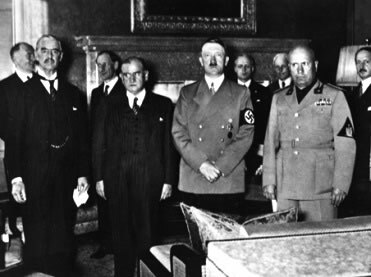THE Battle of Nations occurred in October 1813, opposing the French troops commanded by Napoleon Bonaparte to the call Sixth Coalition, a military union between Prussia, Austria, Russia and Sweden, hence the name Battle of Nations. Taking place in Leipzig, in present-day Germany, Napoleon's defeat at the Battle of the Nations began the fall of the French emperor.
A year earlier, French troops had suffered a major defeat by the Russian army. With Napoleon's setback, the countries defending the Ancien Regime decided to unite to end the power conquered by the French general in Europe. Allied troops were commanded by the Austrian Field Marshal, Prince Karl-Philipp Schwarzenberg, for three days of fighting in and around Leipzig.
The Battle of Leipzig, as it was also known, lasted from 15 to 18 October 1813, with allied nations' cavalry and infantry heavily attacking the French army. An estimated 500,000 fighters from both sides participated in the Battle of the Nations, possibly the biggest battle in history to date. About 100,000 people died, and thousands more were injured or contracted diseases, mainly typhus. Bodies were buried in mass graves even months after the battle ended.
With the impossibility of containing the attack by the Allied troops, on October 19, Napoleon Bonaparte ordered the withdrawal of French troops in towards the West, opening the way for the Sixth Coalition to enter French territory and reach the country's capital, Paris, in March 1814. With the defeat and the advance of the Allied troops, Napoleon was forced into exile on the island of Elba.
Do not stop now... There's more after the advertising ;)
The Battle of Nations also raised concern about the large number of deaths that the wars were reaching. This concern also led to the attempt to seek diplomatic solutions before going into military confrontations. Not that it would end wars, maybe just postpone them in some cases.
Another consequence of the Battle of the Nations was the formation of the Congress of Vienna, whose main function was to create the conditions for prevent the advance of the ideals and institutions of the French Revolution, defend the Ancien Régime and redefine the borders in Europe.
The Battle of Nations is commemorated annually in Germany, as part of the construction of national identity, being seen as an embryo of the Unification process in Germany.
––––––––––––
* Image Credit: Igor Golovniov and Shutterstock.com
By Tales Pinto
Master in History
Would you like to reference this text in a school or academic work? Look:
PINTO, Tales dos Santos. "Battle of Nations and the Fall of Napoleon"; Brazil School. Available in: https://brasilescola.uol.com.br/guerras/batalha-das-nacoes-queda-napoleao.htm. Accessed on June 28, 2021.

